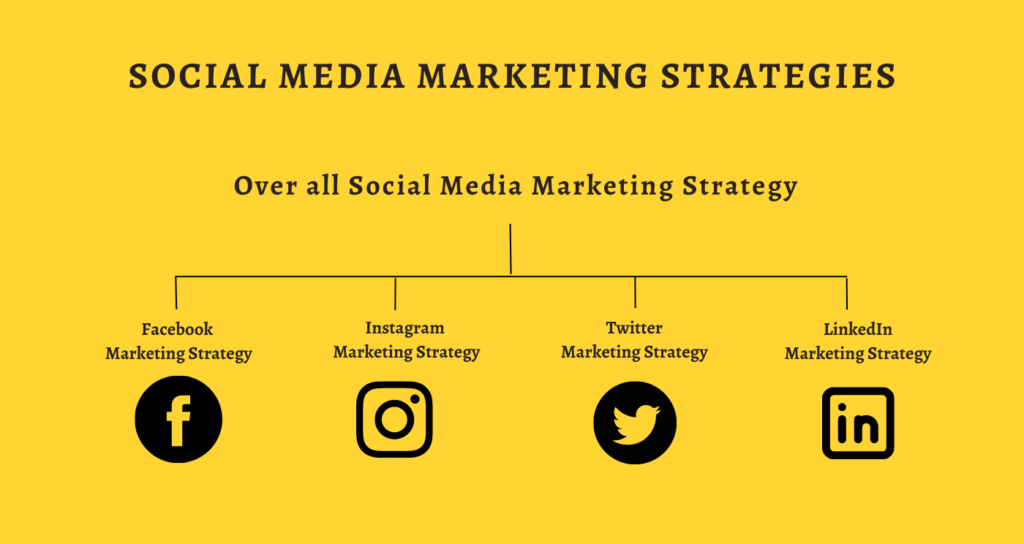Social media is not just a place to connect with friends and family but also a powerful tool to market your business and reach your potential customers. According to Statista, there were 4.48 billion active social media users worldwide as of January 2024, accounting for 57% of the global population. This means that social media offers a huge opportunity for businesses to showcase their brand, products, and services, to engage with their audience, and grow their customer base.

However, social media marketing is not as simple as creating a profile and posting some content. It requires a strategic and systematic approach, as well as an understanding of the best practices and trends of each platform. In this article, we will cover everything you need to know about business marketing on social media, including the benefits, the challenges, the strategies, and the tips to succeed.
This article will provide a comprehensive guide on marketing your business on social media, including the following topics:
- What is social media marketing, and why is it important for your business?
- How to create a social media marketing strategy and plan for your business?
- How do you choose the right social media platforms and tools for your business?
- How to create and optimize your social media profiles and content for your business?
- How do you increase your social media followers and engagement for your business?
- How do you measure and improve your social media marketing performance and results for your business?
Read Also: What is an Entrepreneur Mindset, and How to Develop it?
What is social media marketing, and why is it essential for your business?

Social media marketing uses platforms and tools to promote your products or services, build brand awareness, and communicate with your existing and potential customers. Social media marketing can involve various activities, such as
- Create and share content, such as text, images, videos, or stories, on social media platforms like Facebook, Instagram, Twitter, and LinkedIn.
- Engaging with your audience, such as liking, commenting, sharing, tagging their content, or responding to their questions, feedback, or complaints.
- Running social media advertising campaigns, such as paid ads, sponsored posts, or influencer marketing, to reach a larger or more targeted audience.
- Use social media analytics and listening tools like Google Analytics, Facebook Insights, or Hootsuite to track and measure your social media performance and gain insights on your audience, competitors, and industry.
Reda Also: Study Hacks for Entrepreneurs2024
Social media marketing is important for your business because it can help you achieve various goals, such as
What are the benefits of marketing my business on social media?

Marketing your business on social media can bring you many benefits, such as
Increased brand awareness.
Social media can help you increase your brand visibility and recognition, as you can reach a large and diverse audience with your content and messages. You can also use social media to showcase your brand personality, values, and story and to build trust and loyalty with your audience.
Improved customer service
Social media can help you improve your customer service, as you can communicate with your customers directly and instantly and address their questions, feedback, or complaints. You can also use social media to provide value and support to your customers by sharing helpful information, tips, or resources or by offering discounts, rewards, or incentives.
Read Also: How to Balance Business and Study in 2024 A Guide for Entrepreneurs
Enhanced customer engagement
Social media can help you enhance your customer engagement, as you can interact with your customers and encourage them to participate in your brand activities, such as by liking, commenting, sharing, or tagging your content or by joining your contests, polls, or live events. You can also use social media to create a community and a sense of belonging among your customers and to foster relationships and advocacy.
Increased website traffic

Social media can help you increase your website traffic, as you can drive your social media followers to your website by sharing links to your blog posts, landing pages, or product pages. You can also use social media to boost your SEO ranking, as social signals, such as likes, shares, or comments, can indicate the relevance and authority of your website to search engines.
Higher sales and conversions
Social media can help you increase your sales and conversions by showcasing your products and services and highlighting their features, benefits, or testimonials. You can also use social media to generate leads, such as by using lead magnets, opt-in forms, chatbots, or to facilitate purchases using social commerce, shoppable posts, or buy buttons.
Read Also: How To Starting a Business with No Money In 2024
How can I increase followers and engagement on social media?

To increase your followers and engagement on social media, you need to create and share high-quality, relevant, and engaging content that attracts and retains your target audience. Here are some tips to help you do that:
Know your audience
You need to know who your ideal customers are, what their needs, preferences, and pain points are, and what type of content they are interested in and respond to. You can use tools such as Google Analytics, Facebook Insights, or Twitter Analytics to collect and analyze data about your audience, such as their demographics, behaviors, and interests.
Define your goals.
You need to define your specific and measurable goals for your social media marketing, such as increasing your brand awareness, website traffic, or sales. You also need to align your goals with your overall business objectives and strategy and track and measure your progress and performance using tools such as Google Analytics, Facebook Insights, or Twitter Analytics.
Read Also: What Is Growth Mindset?What Is Growth Mindset?
Choose your platforms.
You need to choose the right social media platforms for your business based on your audience, goals, and content. You don’t need to be on every platform but rather focus on the ones that suit your business best. For example, if your business is visual or creative, you might want to use platforms such as Instagram, Pinterest, or YouTube to showcase your products or services. If your business is professional or informative, you might want to use platforms such as LinkedIn, Twitter, or Medium, to share your expertise or insights.
Create a content calendar

You need to create a content calendar to plan and organize your content for each platform and to ensure consistency and quality. Your content calendar should include the following elements: the type of content, such as text, image, video, or story; the topic or theme of the content, such as product, promotion, or education; the tone and style of the content, such as formal, casual, or humorous; the date and time of the content, based on the optimal posting frequency and schedule for each platform; and the call to action of the content, such as visit website, sign up or buy now.
Optimize your content
You need to optimize content for each platform to ensure that it meets the best practices and standards and reaches and engages your audience effectively. You can use tools like Canva, Lumen5, or Headline Analyzer to create and edit your content and enhance its visual appeal, readability, or SEO. You can also use tools like Hashtagify, BuzzSumo, or Google Trends to find and use relevant keywords, hashtags, or topics to increase your content’s visibility and reach.
Engage with your audience
You need to engage with your audience on social media to build relationships and trust and to encourage loyalty and advocacy. You can do this by responding to their comments, messages, or mentions and acknowledging their feedback, reviews, or testimonials. You can also do this by asking them questions, conducting polls or surveys, hosting live events, and inviting them to share their opinions, stories, or experiences. You can also do this by joining or creating groups, forums, or chats to interact with your audience and other relevant users and by collaborating or partnering with influencers, experts, or brands who can endorse or promote your business to their followers.
Read Also: Best Budgeting Technique for Teens in 2024
How can I choose the right social media platforms for my business?
Consider the following factors to choose the right social media platforms for your business.
Your audience:
You must choose the platforms your target audience uses and prefers and where they will most likely discover and engage with your content. You can use tools, such as Pew Research Center, Statista, or Socialbakers, to find out the demographics, behaviors, and interests of each platform’s users and compare and contrast them with your ideal customers.
Your goals:
You need to choose the platforms that align with your social media marketing goals and can help you achieve them. You can use tools, such as Smart Insights, Social Media Examiner, or Buffer, to find out each platform’s features, benefits, and challenges and evaluate and measure their effectiveness and impact on your business.
Your content:
You need to choose the platforms that suit your content type, format, and style and showcase your content best. You can use tools, such as Sprout Social, Hootsuite, or CoSchedule, to find the best practices and guidelines for creating and optimizing your content for each platform and managing and distributing your content across multiple platforms.
How can I stay updated with social media trends and algorithm changes?

Social media trends and algorithm changes constantly evolve and affect your marketing strategy and performance. To stay updated with the latest social media trends and algorithm changes, you need to do the following:
Follow the official sources
You need to follow the official sources of each platform, such as their blogs, newsrooms, or help centers, where they announce and explain their latest updates, features, and changes. You can also subscribe to their newsletters, podcasts, or webinars, where they share their insights, tips, and best practices.
Follow the industry experts
You need to follow the industry experts, such as influencers, bloggers, or analysts, who have the knowledge, experience, and authority in the field of social media marketing and who can provide you with valuable information, analysis, and advice. You can also join their communities, groups, or events to interact with them and other relevant users and learn from their experiences and perspectives.
Follow the data and analytics
You need to follow the data and analytics of your own social media marketing performance and see how the trends and algorithm changes to affect your results and impacts. You can use tools like Google Analytics, Facebook Insights, or Twitter Analytics to collect and analyze data about your audience, content, and outcomes and identify and understand the patterns, trends, and insights. You can also use tools like Social Blade, Sprout Social, or BuzzSumo to compare and benchmark your performance with your competitors and discover and learn from the best practices and examples.



